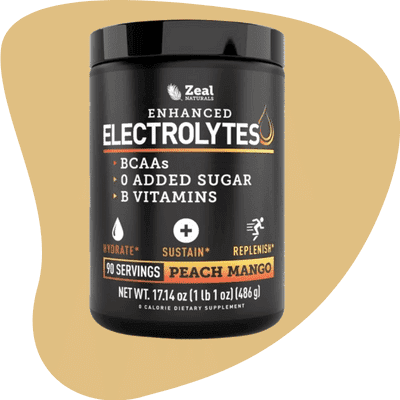Are you looking to shed some pounds and feel energized, but not sure where to begin? A low carb meal plan for beginners can be the perfect way to kickstart your weight loss journey, helping you shed pounds, boost energy, and improve overall health. This guide breaks down an easy, 7-day low carb meal plan tailored specifically for beginners. With this meal plan, you’ll explore tasty low-carb recipes, learn helpful tips, and get essential information on supplements that support a balanced low-carb lifestyle.
With this low carb meal plan for beginners, you can start strong and avoid common pitfalls. Following a low carb diet might seem challenging at first, but with a structured 7-day low carb meal plan, you’ll build momentum and confidence as you go. Each day provides easy, delicious recipes that fit perfectly into a beginner’s low-carb approach. Let’s get started and see how this low carb meal plan for beginners can set you on a path to success!
What is a Low Carb Diet?
Definition and History
A low-carb diet limits carbohydrates—such as those found in grains, fruits, and starchy vegetables—and prioritizes protein and healthy fats. The diet’s origins trace back to early practices, with low-carb approaches becoming popular in the 20th century through the Atkins and keto diets.
Types of Low Carb Diets
Some popular low-carb diet types include:
- Keto Diet – Extremely low in carbs, with high fat intake.
- Atkins Diet – Carbohydrates are gradually introduced in phases.
- Paleo Diet – Focuses on whole foods, eliminating grains, legumes, and processed foods.
How Low Carb Diets Work
Low-carb diets work by shifting your body’s metabolism. By reducing carbs, the body burns stored fat for energy, a process known as ketosis. This can lead to weight loss, better blood sugar control, and improved energy.
Benefits of a Low Carb Diet
- Weight Loss
- A major benefit of low-carb diets is weight loss, often resulting from lowered insulin levels and increased fat burning. (1)
- Blood Sugar Control
- For individuals with insulin resistance or type 2 diabetes, reducing carbs can stabilize blood sugar levels, minimizing the chance of spikes.
- Improved Heart Health
- Studies suggest that low-carb diets can increase HDL cholesterol (the “good” kind) and reduce triglycerides, both indicators of heart health. (2)
- Mental Clarity and Energy Levels
- Switching to a low-carb lifestyle often results in fewer energy crashes and better mental focus, as blood sugar levels become more stable.
Common Myths about Low Carb Diets
A few common myths can mislead beginners: (3)
- Myth #1: Low-carb diets are too restrictive.
- Myth #2: You can’t get enough nutrients.
- Myth #3: Low-carb diets are unsustainable long-term.
Low-carb diets can be quite flexible and nutritionally balanced if you focus on whole foods and include nutrient-dense options like leafy greens, avocados, and nuts.
Setting Goals for Your 7-Day Low Carb Meal Plan
Before diving in, it’s helpful to set some personal goals:
- Identifying Personal Goals
- Think about why you want to follow a low-carb plan. Is it to lose weight, increase energy, or feel better overall? Write down these reasons as motivation.
- Tracking and Measuring Progress
- Use tools like journaling apps or even a simple notebook to track meals, carb intake, and progress. This will help you see how your body responds to the diet.
7-Day Low Carb Meal Plan for Beginners
Ready to get started? Here’s a simple, beginner-friendly 7-day low-carb meal plan to get you on the path to success.
Day 1: Low Carb Jumpstart
- Breakfast: Scrambled eggs with spinach and avocado.
- Lunch: Grilled chicken salad with mixed greens and olive oil dressing.
- Dinner: Baked salmon with roasted asparagus.
- Snack: A handful of almonds.
Day 2: Building Momentum
- Breakfast: Greek yogurt with a few berries and chia seeds.
- Lunch: Turkey lettuce wraps with avocado and tomato.
- Dinner: Stir-fried shrimp with zucchini noodles.
- Snack: Celery sticks with almond butter.
Day 3: Overcoming Carb Cravings
- Breakfast: Chia pudding with unsweetened coconut milk.
- Lunch: Tuna salad over leafy greens.
- Dinner: Beef stir-fry with bell peppers and mushrooms.
- Snack: Cucumber slices with guacamole.
Day 4: Mid-Week Motivation
- Breakfast: Omelet with bell peppers and feta cheese.
- Lunch: Chicken Caesar salad without croutons.
- Dinner: Grilled pork chops with a side of roasted Brussels sprouts.
- Snack: String cheese or hard-boiled egg.
Day 5: Staying on Track
- Breakfast: Smoothie with spinach, unsweetened almond milk, and a scoop of protein powder.
- Lunch: Egg salad lettuce wraps.
- Dinner: Grilled steak with cauliflower mash.
- Snack: Small handful of walnuts.
Day 6: Fuel and Focus
- Breakfast: Cottage cheese with a few slices of cucumber.
- Lunch: Shrimp salad with avocado and mixed greens.
- Dinner: Roast chicken with sautéed green beans.
- Snack: Bell pepper slices with hummus.
Day 7: Reflection and Planning Ahead
- Breakfast: Scrambled eggs with mushrooms and cheese.
- Lunch: Turkey and veggie salad with olive oil.
- Dinner: Beef burger wrapped in lettuce, with a side of roasted zucchini.
- Snack: A handful of macadamia nuts.
Essential Tips for Success on a Low Carb Diet
- Meal Prep and Planning
- Planning is crucial. Set aside time each week to meal prep, which will make sticking to your low-carb plan easier and help you avoid impulsive food choices.
- Hydration and Electrolytes
- As you reduce carbs, your body loses water, which means staying hydrated is vital. Consider adding a pinch of salt to your water or supplementing it with electrolytes to maintain balance.
- Exercise and Low Carb Dieting
- Physical activity can enhance results, but try to start with light exercises. Walking, yoga, or light strength training can help maintain muscle without exhausting energy.
What to Avoid on a Low Carb Diet
Avoid high-carb foods and ingredients that could hinder progress. Watch out for:
- Sugary drinks and sodas
- Bread, pasta, and pastries
- High-sugar fruits like bananas and grapes
- Processed and junk foods with hidden carbs
Learning to read food labels and ingredients can help you steer clear of added sugars and unnecessary carbs.
Understanding Carbohydrates: Good vs. Bad Carbs
Not all carbs are created equal. Here’s the lowdown:
- Good Carbs: Found in vegetables, low-sugar fruits, and legumes, these carbs provide fiber and nutrients.
- Bad Carbs: Refined and processed carbs, like those in sugary snacks and white bread, spike blood sugar and lead to crashes.
Choosing nutrient-dense carbs can support your low-carb diet without compromising on nutrition.
Supplements to Support Your Low Carb Journey
Transitioning to a low-carb diet can offer incredible benefits, but it also comes with unique challenges. As your body adapts to a lower intake of carbohydrates, certain key nutrients can help fill in any nutritional gaps, reduce potential side effects, and keep your energy high. Below, we’ll explore some of the best supplements to consider for those on a low-carb journey, each with its essential benefits.
1. Electrolytes: Essential for Hydration and Muscle Function
One of the most common issues in low-carb dieting is the loss of electrolytes, which happens as your body sheds excess water weight. Electrolytes—including sodium, potassium, and magnesium—are crucial for keeping you hydrated, supporting nerve function, and maintaining muscle performance.
- Sodium: Essential for balancing fluids and preventing dehydration. Consider lightly salting your meals or drinking an electrolyte-rich beverage.
- Potassium: Aids in muscle and nerve function and can help reduce cramping. It’s found in leafy greens and avocados, but supplements may help if you’re not getting enough.
- Magnesium: Plays a critical role in muscle relaxation, heart health, and sleep quality. Magnesium supplements can help combat common symptoms like fatigue and muscle cramps.

The Enhanced Electrolyte Powder in Peach Mango flavor is a sugar-free hydration supplement packed with essential nutrients to support active lifestyles, keto diets, and recovery needs. With 90 convenient servings, each dose delivers a comprehensive blend of electrolytes, including potassium, zinc, and magnesium, designed to restore balance and maintain optimal hydration. Enhanced with Branched-Chain Amino Acids (BCAAs) for muscle support and B vitamins for energy, this supplement is ideal for those seeking a refreshing, flavorful way to boost hydration without sugar. Whether you’re following a keto diet or simply want to stay hydrated, this formula provides a balanced, tasty, and effective way to meet your daily electrolyte needs.

2. Omega-3 Fatty Acids: Supporting Heart and Brain Health
Omega-3 fatty acids, particularly EPA and DHA, are important for heart health and have anti-inflammatory properties. Since low-carb diets are often high in protein and fats, adding omega-3 supplements like fish oil can help balance out healthy fats in your diet.
- Benefits: Improves heart health, supports cognitive function, and reduces inflammation.
- Sources: Fish oil capsules, krill oil, or algae-based supplements (for vegetarians).

The Triple Strength Omega-3 Fish Oil supplement provides a potent dose of essential fatty acids, delivering 3,600 mg per serving with over 2,100 mg of Omega-3s, including 1,300 mg of EPA and 860 mg of DHA. This premium formula is crafted to support heart, brain, and joint health while aiding in reducing inflammation and promoting overall wellness. Designed for optimal absorption and quality, this burpless formula minimizes fishy aftertaste, making it easier to enjoy the benefits of high-strength Omega-3s without discomfort. With 120 softgels in each bottle, this supplement is ideal for those looking to boost their intake of essential fatty acids in a convenient, high-quality form.

3. Fiber Supplements: Aiding Digestion and Blood Sugar Control
When you reduce carbs, you may also lower your intake of dietary fiber, especially if you’re cutting out grains and certain fruits. Fiber supplements, such as psyllium husk or inulin, can support digestive health, help with regularity, and even assist in blood sugar control.
- Benefits: Helps maintain digestive health, prevents constipation, and supports blood sugar stability.
- Sources: Look for natural, non-synthetic fiber supplements, or increase your intake of fiber-rich low-carb vegetables.

The GOBIOTIX Fiber Supplement offers a convenient and effective way to support gut health and digestive regularity with a prebiotic, soluble fiber powder. Unlike traditional gummies, this supplement is sugar-free, gluten-free, and designed for those following keto or vegan lifestyles. Each serving contains a carefully formulated blend of prebiotic fibers that nourish beneficial gut bacteria, helping to enhance digestion, boost immunity, and maintain a balanced gut environment. Tasteless and easy to mix into water, smoothies, or your favorite beverage, this versatile fiber supplement is a gentle yet powerful option to improve digestion and promote overall wellness.

4. Vitamin D: Essential for Immunity and Bone Health
Vitamin D is vital for immune health, bone strength, and mood regulation. Since many people are deficient in this nutrient, adding it to your low-carb diet can provide the necessary support, especially if your new meal plan keeps you indoors for food prep!
- Benefits: Boosts immune function, supports bone density, and improves mood.
- Sources: Vitamin D3 supplements are most effective and can be paired with vitamin K2 for better absorption.

The Bronson Vitamin K2 (MK7) with D3 Supplement combines two essential nutrients—Vitamin D3 and Vitamin K2—in a convenient, easy-to-swallow capsule. Each dose provides 5000 IU of Vitamin D3, which supports immune health, bone density, and muscle function, alongside 90 mcg of Vitamin K2 MK-7 to enhance calcium absorption and guide it to the bones where it’s needed. This non-GMO formula is designed for optimal bioavailability, making it an excellent choice for those seeking a balanced D and K complex for bone and cardiovascular health. With 120 capsules, it offers a generous supply of these synergistic vitamins for long-term wellness.

5. Multivitamins: Filling in Nutritional Gaps
Switching to a low-carb diet sometimes means limiting certain food groups, which can lead to nutrient gaps. A quality multivitamin can help ensure you’re meeting your daily requirements for essential vitamins and minerals, supporting overall wellness.
- Benefits: Provides a balanced mix of essential nutrients to complement a low-carb diet.
- Considerations: Look for multivitamins with no added sugars or carbs.

The Vegan Superfood Daily Keto Multivitamin is a versatile, plant-based supplement formulated to support the daily health needs of both men and women on a keto diet. This orange-flavored powder combines essential vitamins, BCAAs (Branched-Chain Amino Acids), and a blend of digestive enzymes, providing balanced energy, muscle recovery, and nutrient absorption without causing stomach discomfort. Free from artificial ingredients and packed with B vitamins for a natural energy boost, this multivitamin powder is easy to mix and offers a refreshing, convenient way to enhance your daily nutrition. Ideal for anyone looking for a clean, vegan-friendly multivitamin to support an active keto lifestyle.

Dealing with Low Carb Diet Side Effects
Some common side effects can arise when you switch to a low-carb diet:
- Fatigue and Cravings: Usually temporary, as your body adjusts.
- Constipation: Increase water intake and fiber from veggies.
- Keto Flu: Mild symptoms of fatigue, headache, and irritability.
To minimize these effects, stay hydrated, consume enough electrolytes, and gradually reduce carb intake.
How to Maintain a Low Carb Lifestyle Beyond 7 Days
Once you’ve completed the 7-day plan, it’s important to adjust your approach for the long term.
Transitioning to Long-Term Goals
Determine your carb threshold by gradually reintroducing low-sugar fruits or whole grains. This will help you sustain a balanced approach without feeling restricted.
Adjusting Carb Levels
Listen to your body, especially if you’re very active or feeling low in energy. Some people may benefit from adjusting carb intake based on activity levels.
Finding Balance and Sustainability
Allow flexibility while maintaining healthy boundaries. Balance is the key to making low-carb living sustainable.
FAQs about Low Carb Diet for Beginners
Can you lose weight on a low carb diet?
Yes, many people find low-carb diets effective for weight loss, especially in the beginning.
Is it safe to start a low carb diet?
For most people, yes. But check with your doctor if you have any underlying health conditions.
How many carbs should a beginner eat?
Typically, beginners start with 20–50 grams per day, depending on their goals. (4)
What are the best foods for a low carb diet?
Focus on whole foods like leafy greens, lean meats, fish, eggs, and healthy fats.
Are cheat days okay?
While an occasional cheat meal can help with cravings, it’s best to avoid large amounts of carbs in one sitting.
The Bottom Line: Embracing Your Low Carb Journey for Long-Term Success
As you wrap up this 7-day low-carb meal plan, take a moment to reflect on how these changes have impacted your energy, focus, and overall well-being. Starting a low-carb lifestyle can bring noticeable benefits in just a short time, but real success comes from integrating this way of eating into your everyday life. Low-carb eating doesn’t have to be restrictive; it’s about finding satisfying foods that keep you energized, supporting your body with the right nutrients, and making choices that suit your goals and lifestyle.
Remember, every journey has ups and downs, so be patient with yourself as you transition to a more sustainable low-carb routine. Each day on this journey teaches you something about your body, your needs, and the foods that make you feel your best. With tools like meal planning, supplement guidance, and simple recipes, you can continue to build a balanced low-carb lifestyle that works for you.
As you look ahead, don’t hesitate to make adjustments that fit your unique needs, whether it’s increasing variety in your meals or adding more activity to your daily routine. The goal is to create a lifestyle that you enjoy and can sustain long-term. Here’s to a healthier, more energetic, and fulfilling journey ahead—one low-carb choice at a time!







I visit every day a few web sites and blogs to read posts, except this webpage gives quality based posts.
Thank you so much it’s my pleasure